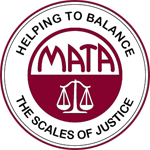Personal Injury Law 101
What is Personal Injury Law?
Personal Injury Law provides individuals who have been physically or psychologically harmed due to the negligence or intentional actions of others the opportunity to seek compensation for their losses.
What are Common Types of Injury Law Cases?
Personal injury law encompasses a variety of cases, including:
- Car Accidents
- Slip and Fall Incidents
- Medical Malpractice
- Motorcycle Accidents
- Boating Accidents
- Semi-Truck Accidents
- Wrongful Death
- Work-Related Injuries
What is the Key Factor in Most Personal Injury Cases?
The majority of personal injury cases rely on the concept of negligence—the failure to exercise reasonable care to prevent harm or loss to another person.
What Compensation Might Victims of Negligence Be Entitled To?
Victims of negligence in personal injury cases may be entitled to the following types of compensation:
- Economic Damages (e.g., medical bills, lost wages)
- Non-Economic Damages (e.g., pain and suffering, emotional distress)
- Punitive Damages (in cases of particularly reckless behavior, designed to punish the defendant)
How Can a Personal Injury Lawyer Help with My Claim?
An experienced personal injury lawyer can help you identify potential areas of compensation that you might overlook, such as:
- Lesser-known insurance coverages
- Commercial and umbrella insurance policies
- Medical pay benefits
- Non-obvious defendants
- Overlooked medical bills

FOR MORE INFORMATION & TO SEE THE LAWYERS AT The Work Comp Center-MCDUFFEY & MEDCALF LLC CAN HELP YOU WITH YOUR PERSONAL INJURY CASE:
CALL 417-322-6418 TO SCHEDULE A FREE CONSULT
EMAIL: br**@*********aw.com
OR SUBMIT YOUR INFORMATION HERE FOR A FREE CASE EVALUATION.
This article is NOT intended to substitute for consultation with a lawyer, nor should you rely upon this article in place of a lawyer. In most cases, consultations with a lawyer are free. We strongly advise you discuss the facts of your case with any attorney. The choice of an attorney is an important decision, and should not be based on this article alone. Other lawyers might disagree with any opinions offered herein.








